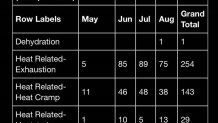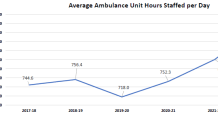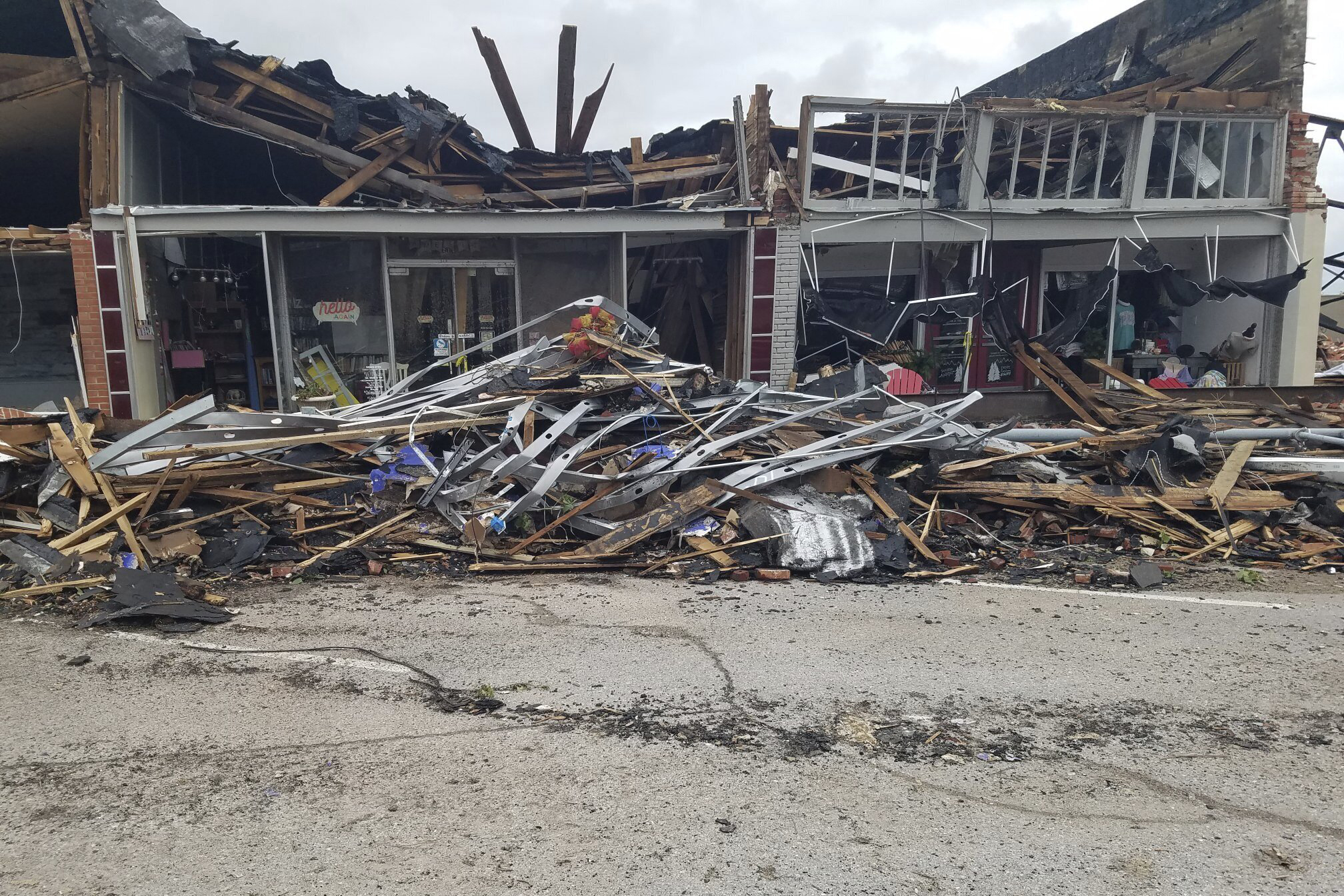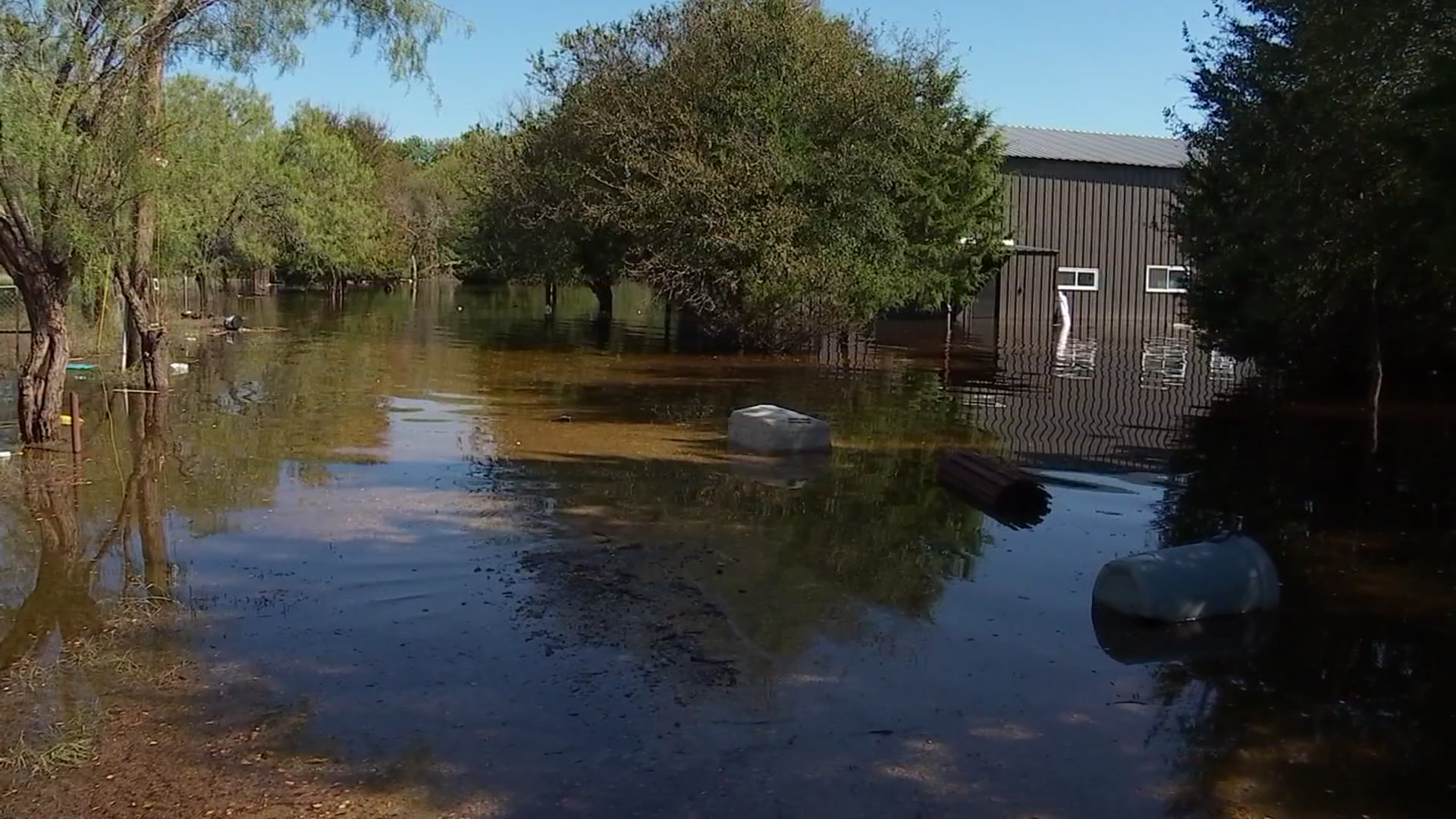North Texas got a break from the oppressive heat for a few days, but as NBC 5 meteorologists have reported – the heat is coming back in full force starting Thursday.
With highs on Friday and over the weekend expected to push close to 110 degrees or higher, local nonprofits have been trying to keep up with the demand, helping families survive the dangerous heat.
The realities of what people are living through this summer are heartbreaking. Many are elderly residents who live without working air conditioning because a fixed income makes it impossible to get it repaired.
Nonprofits like the Society of St. Vincent de Paul are having to step up to help people survive the heat. The volunteer organization offers direct aid to those in need across nine counties in North Texas and has provided summer-related assistance for decades.
Get DFW local news, weather forecasts and entertainment stories to your inbox. Sign up for NBC DFW newsletters.
"You know, when you're dealing with this kind of heat, it really does become an issue of life or death,” said Luis Gonzalez, CEO of Society of St. Vincent de Paul of North Texas.
St. Vincent de Paul just completed a limited partnership with another nonprofit, North Texas Air Conditioning Initiative, to provide easy access to free air conditioning units to individuals in Lancaster and surrounding Southern Dallas. Within a month, the agency quickly ran out of units, which were installed in nearly 50 qualified homes.
But even for those who have working air, energy bills are so high this summer, it is squeezing family budgets for another unbearably hot month. That's why the next focus is providing utility assistance.
Local
The latest news from around North Texas.
"It might be rent or utility things of that nature during, during the summer, with the utility bills going as high as they do, we get a lot of calls from people asking us for assistance to try and help offset the cost for their electric bills,” said Gonzalez.
In 2022, St. Vincent de Paul served nearly 40,000 with over $2 million in utility and rental assistance. In 2021, it served over 76,000 North Texans, providing over $3 million in assistance.
St. Vincent is hoping people who are on fixed incomes can apply and get the help they need. Click here for details.
"The fact that we've had these kinds of summers now with this heat just getting worse and worse, it really does call us now to think about – ‘OK, what are some things that we might be able to project and think about for next year, for next summer and for the summers to come? What are the different things that we might be able to do and get creative and partner with other nonprofits as well?'" said Gonzalez.
Don't forget, many cities in DFW are treating rec centers, community centers and libraries as cooling stations – with some giving out free water.
Click here for a list of cooling centers in Dallas. For other locations, click here to see a full list.
PARAMEDIC RESPONSE
While these programs and nonprofits do what they can, first responders are also trying to stay on top of the heat illness response volume.
Paramedics in both Dallas and Fort Worth told NBC 5 that this summer is one of the hottest they have seen in a long time, in terms of intensity and how relentless the heat is.
That might be why they're seeing an increase in calls these last couple of weeks.
"We just think that with the prolonged exposure to the heat that a lot of our residents in Dallas have been exposed to, we just think that that cumulative effect over this longer period of time – it certainly causes a physiological change in the body that decreases its ability to adapt,” said Jason Evans with Dallas Fire-Rescue. "And that's why now we're starting to see that increase in calls because the temperatures just aren't letting up."
Evans said the old adage -- "it's not the heat, it's the humidity"-- is the likely culprit as to why this summer feels worse.
“The humidity basically nulls the body's ability to cool itself through sweating, at least to do it efficiently,” he said. “And that's why when you have high humidity combined with the high heat, you start to see a rise in the number of heat-related calls that we have.”
In total, Dallas Fire-Rescue has responded to more than 560 heat-related illnesses so far this summer. Many calls involve the elderly, construction workers, and even people who exercise outside and get caught off guard.

Evans shared what paramedics do for patients, that others can take note of if they need to spring into action.
"If they are still out in the elements, the first thing you want to do is move them to a cooler environment, be that indoors inside of a building or just in a shaded area,” he said. "Immediately start cooling measures. You want tofocus your cooling efforts on areas close to the core, like the neck, the armpits the growing area because that's the blood that's closest to your heart and that's going back internally to help cool that body, your body off faster."
Cooling measures include using cold water or ice and removing clothing from key areas. Click here for more information.
"If you don't have to be in the sun, then by all means, find you some shade, take very frequent breaks, and make sure you're hydrating long before, during and after activity," said Evans. "Make sure you're putting water and electrolyte rich fluids in your body and not soft drinks or alcohol or anything of that nature. As well as wearing loose fitted light colored clothing."
Meantime in Tarrant County, ambulance service Medstar has treated well over 700 people for heat-related illnesses since May 1. Their data shows response volume in July 2023 was 1% higher than in July 2022 and 12.5% higher than in July 2021.
Just last week alone, they treated over 104 patients. As many as 30 patients were treated in one day. Even the paramedic staff are working longer hours to meet demand this summer.

This week, one of the patients treated was an elderly man, found in a field outdoors. The crew reported a body temperature of 106 degrees.
In another call last week, Medstar responded to a 91-year-old woman in her home, where the air conditioning had failed the day before the 911 call. When crews got there, they estimated the inside temperature of the home was above 100.
It’s a good reminder to check on elderly family, friends, and neighbors while the temperatures are extremely high these next two weeks.



